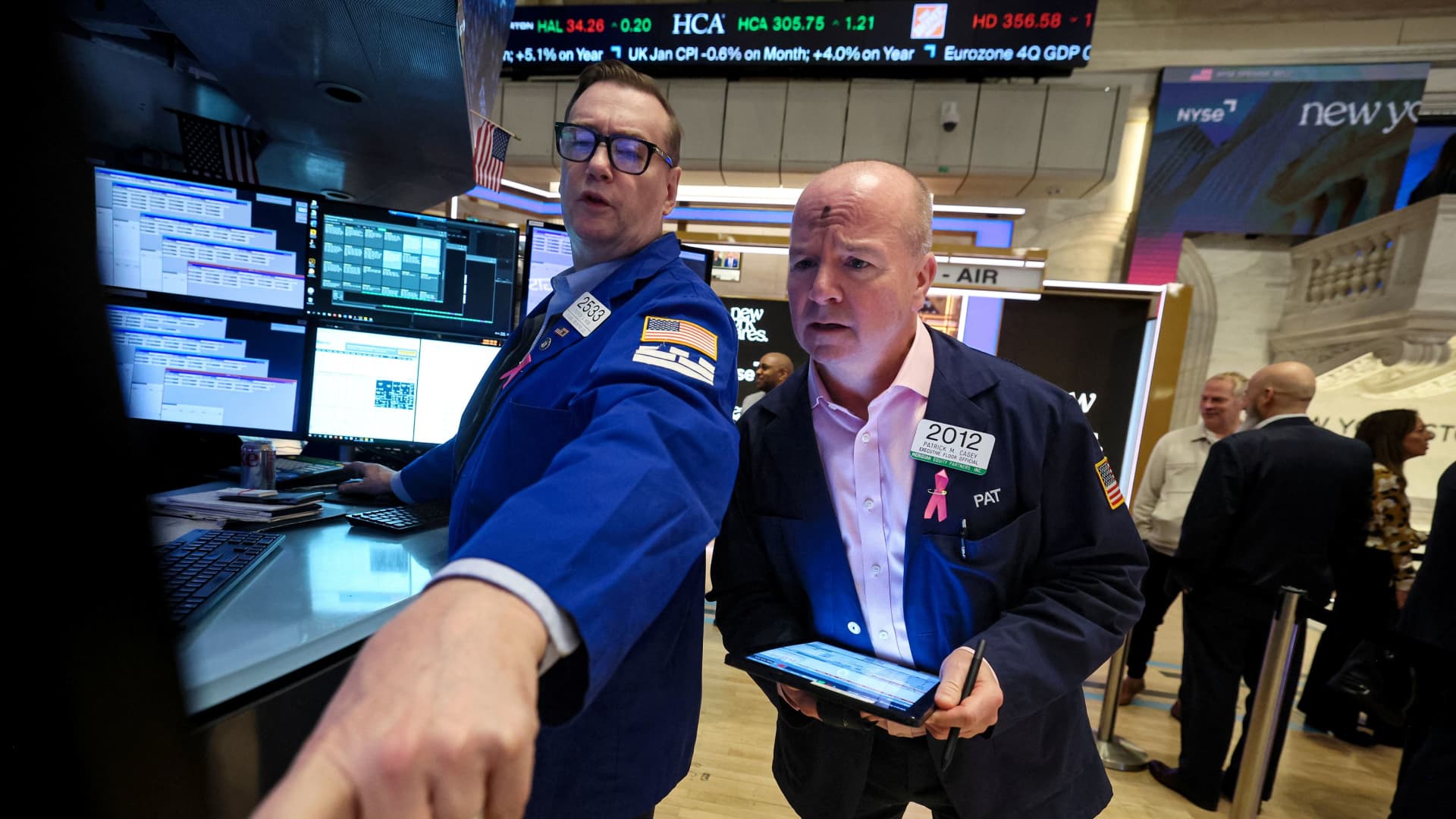This Big Tech stock has an ‘absolutely compelling’ valuation, top fund manager says

Shares of Alibaba , the Chinese e-commerce behemoth, have plummeted over 65% from all-time highs in late 2020 amid economic uncertainty and regulatory tightening in China. However, the company’s revenues and profits have surged since then, and one outperforming fund manager sees the current valuation as a buying opportunity. “Around 2021, people were paying a forward multiple of 30 times earnings for Alibaba,” said Sean Peche, portfolio manager at Ranmore Fund Management. “Profits have grown since then, but now everybody only wants to pay seven and a half times earnings?” Alibaba shares are traded in the U.S., Hong Kong and Germany. BABA 1Y line The slump in the company’s share price came amid concerns of an economic slowdown in China and increased regulation of the internet sector by authorities in Beijing. It’s not just Alibaba that has been affected; the MSCI China index has dropped by nearly 50% over the past three years. “Yes, [the economy is] weak, there’s problems. The government is not great. We know about that. When you look at the valuation, that’s already in the price,” said Andrew Lapping, Ranmore’s chief investment officer. “Alibaba is our third biggest stock [position] now. Why? The valuation is absolutely compelling.” Alibaba’s earnings per share (EPS) has steadily increased from $2.25 in 2015 to $7.76 for the year ending March 2023. Analysts expect the company to report $8.8 EPS in May for the current financial year. Wall Street analysts also expect shares to rise by 38.4% on average over the next 12 months, according to the FactSet data. Alibaba’s cheap share buyback Lapping also pointed to the impact of Alibaba’s share buyback program as distinct compared to many richly valued U.S. tech darlings. Tech giants periodically dilute their shares as employees exercise their share-based compensation schemes. However, they also spend billions annually repurchasing stock to prevent the dilution from ballooning the share count. When share prices rally, companies spend more than they previously anticipated to buy back shares, which causes a drag on shareholder returns. “A lot of the cashflow actually doesn’t come back to shareholders. It goes to offsetting share options dilution,” Lapping said. In Alibaba’s case, during China’s tech boom, the company lavished employees with stock incentives, resulting in share issuance ballooning to 21.7 billion in 2021. However, with its share price now 65% off its peak, Alibaba’s compensation costs have dwindled dramatically. “Because the share price has been falling, the actual cost of the buybacks to offset dilution is far less than the charge effected in income statements,” Lapping added. Ranmore Global Equity Fund, which holds Alibaba stock, outperformed the S & P 500 and the MSCI World indexes in 2023 with a 30% total return without investing in any of the so-called “Magnificient 7” stocks.









